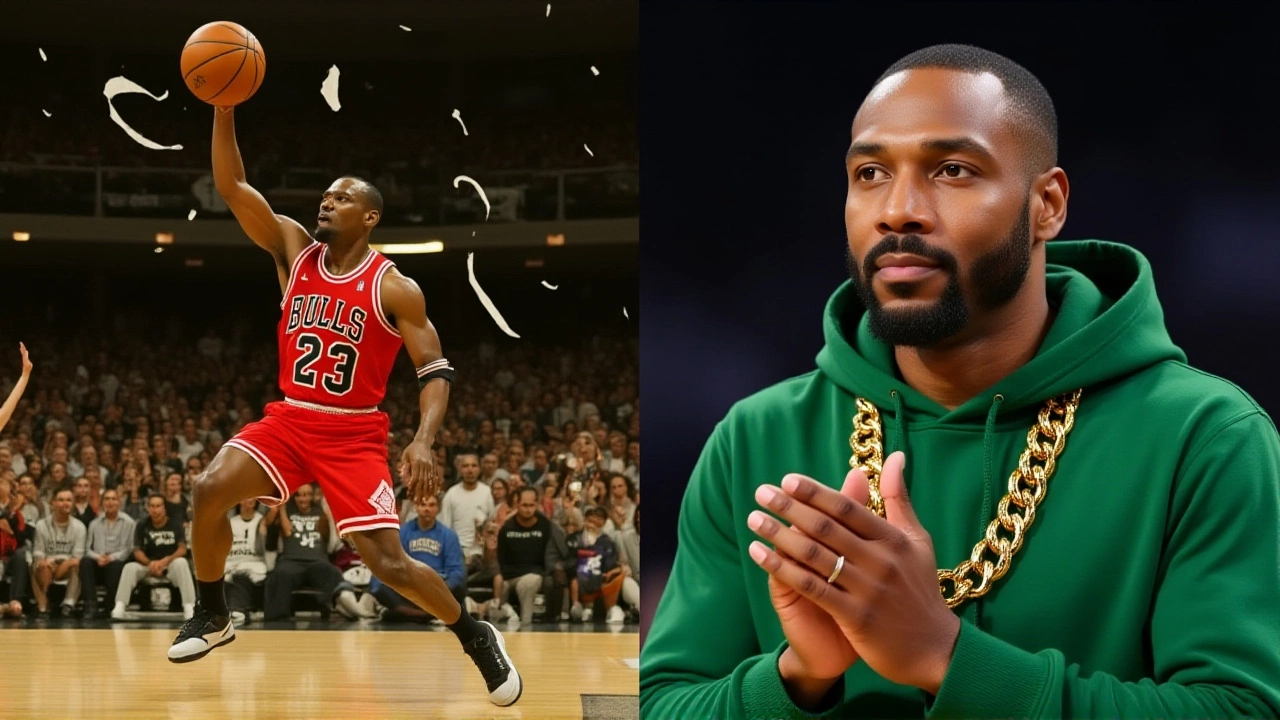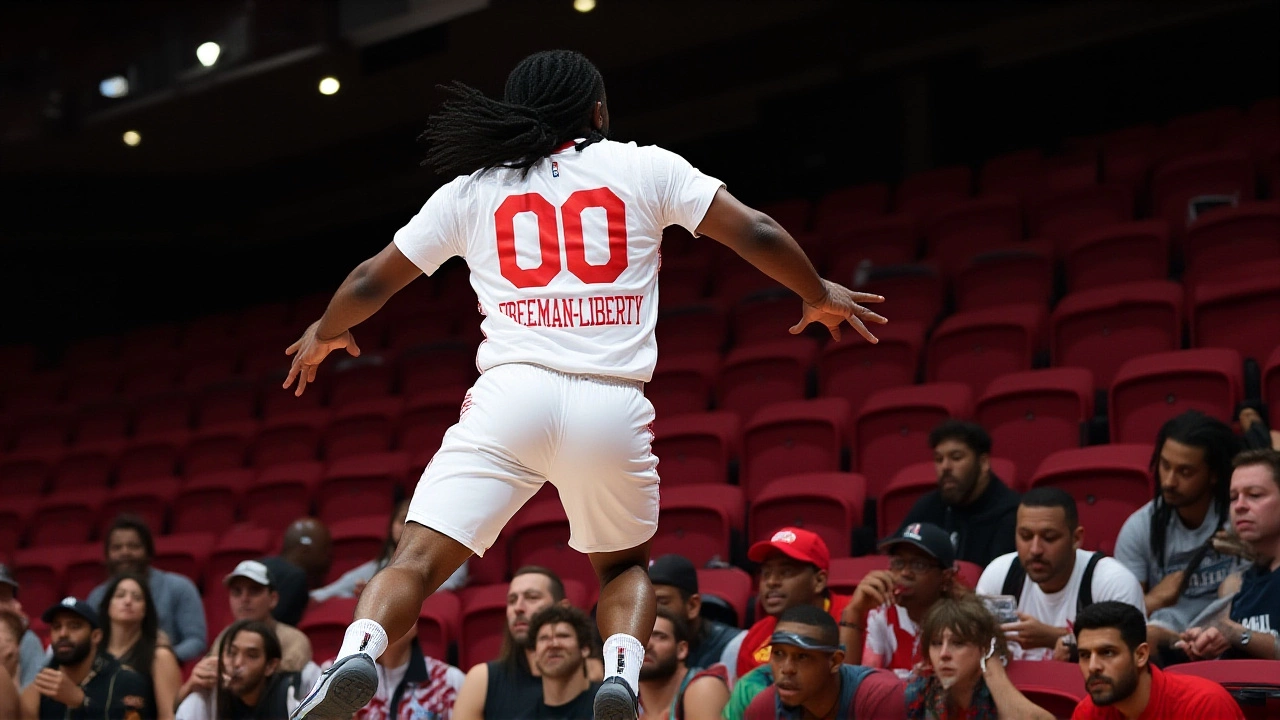The Chicago Bulls closed out their 2025 NBA Summer League campaign with a commanding 105-92 victory over the Utah Jazz on Friday night, July 18, 2025, at the Thomas & Mack Center in Las Vegas. It wasn’t just a win — it was a statement. The Bulls came out firing, dropping 24 points in the first quarter while the Jazz managed a meager 12. That early gap, as Deseret News put it, "couldn’t be overcome," and it set the tone for the entire game. The final score, confirmed by ESPN’s official box score (Game ID 401801692), ended a five-game Summer League run for both teams — but with vastly different endings.
A Slow Start Dooms the Jazz
The Utah Jazz entered this game on a one-game losing streak, desperate to salvage pride in their final outing. Instead, they dug themselves a hole no team can climb out of in Summer League basketball. Their first-quarter scoring — 12 points — was the lowest of any quarter they played all tournament. By the time they finally found rhythm in the third and fourth quarters, putting up 32 points each, it was too late. The Bulls, meanwhile, had already built a 19-point lead by halftime (51-28). Even when Utah clawed back with intensity in the second half, Chicago’s depth and composure held firm. The Jazz’s 1-4 record (.200 winning percentage) placed them in a tie for second-worst in the tournament, alongside the Los Angeles Clippers, Houston Rockets, and New York Knicks.
Bulls Ride Momentum to Strong Finish
For the Chicago Bulls, this win was the third straight in Las Vegas, capping a 3-2 campaign (.600 winning percentage) that offered real glimpses of future potential. Their first-quarter explosion — 24 points — was the highest of any quarter they played. Guard Keyonte George (a 2024 second-round pick) looked confident handling pressure, while rookie forward Amari Bailey added 14 points and six rebounds off the bench. The team’s ball movement was crisp, recording 26 assists on 41 field goals. "They played with purpose," said one anonymous Bulls assistant coach postgame. "This wasn’t just about wins. It was about building habits." The win wasn’t just a morale boost — it was a blueprint for how young players can thrive under structure.
Summer League Context: Who Really Won?
The 2025 Las Vegas Summer League wasn’t about championships — it was about development. The Charlotte Hornets finished undefeated at 6-0, while the Sacramento Kings were close behind at 5-1. But for teams like the Jazz and Bulls, the real story was in the margins. For Utah, the slow starts were a recurring theme — they averaged just 15.8 points in first quarters across all five games. That’s not just a fluke. That’s a systemic issue. Meanwhile, Chicago’s ability to dominate early (averaging 22.4 points in Q1) showed a clear coaching philosophy: pressure from the opening tip. The NBA Summer League - Las Vegas may not carry playoff stakes, but for front offices, it’s where futures are decided.

What’s Next for Both Franchises?
With Summer League over, both teams now shift focus to training camp prep in September. The Jazz will analyze why their young guards — Keyonte George and Malik Beasley — struggled with shot selection early. They’ll also examine whether their defensive rotations were too passive. For the Bulls, the emphasis will be on replicating their first-quarter energy in the regular season. The team’s front office has already signaled interest in bringing back several Summer League performers for training camp invites. The real test? Can the energy of Las Vegas translate to the noise of the United Center?
Why This Game Matters Beyond the Box Score
Summer League games often get dismissed as glorified scrimmages. But this one told a deeper story. The Jazz’s inability to respond to early deficits mirrors larger issues in their rebuild — inconsistency, lack of poise, and reliance on individual talent over system play. The Bulls, by contrast, looked like a team that’s learning how to win together. That’s not just about stats. It’s about culture. And culture, as any veteran coach will tell you, doesn’t get drafted. It gets built — one game at a time.
Frequently Asked Questions
How did the Chicago Bulls’ first-quarter performance impact the outcome of the game?
The Bulls’ 24-point first quarter created a 19-point halftime lead that the Jazz never recovered from, despite outscoring Chicago 64-54 in the final two quarters. That early dominance set the tone, forced Utah into catch-up mode, and allowed Chicago to play with confidence rather than pressure. In Summer League, where teams lack depth, such early leads are often insurmountable.
What does the 1-4 record mean for the Utah Jazz’s rebuild?
The Jazz’s 1-4 record reflects ongoing struggles in their youth development pipeline. They ranked among the bottom three teams in first-quarter scoring and turnover margin. While players like Malik Beasley showed flashes, the lack of cohesion and defensive discipline suggests their rebuild still has major gaps — particularly in leadership and system execution. This isn’t a failure, but it’s a warning sign.
Who were the top performers for the Chicago Bulls in this game?
Rookie forward Amari Bailey led the bench with 14 points and six rebounds, while guard Keyonte George orchestrated the offense with 11 assists and 10 points. Veteran Summer League staple Coby White added 18 points, showing improved decision-making. Their collective effort — 26 team assists — signaled a more cohesive unit than in prior Summer League appearances.
Why was this game part of the consolation bracket?
The NBA Summer League uses a bracket system based on early-round results. Teams with 1-2 or worse records enter the consolation bracket, meaning they’re no longer competing for the championship. This game was essentially a ranking match — the Bulls secured 7th place overall, while the Jazz finished 10th. It’s not glamorous, but it matters for draft lottery tiebreakers and front-office evaluations.
How did the Las Vegas Summer League standings compare to previous years?
The 2025 standings mirrored recent trends: Charlotte dominated again (6-0), and bottom-tier teams remained clustered around 1-4 records. The biggest shift? Fewer blowouts. Teams showed improved defensive discipline, but first-quarter scoring remained inconsistent — a trend that’s been consistent since 2023. The Bulls’ 24-point first quarter was among the highest of the tournament, suggesting they’re ahead of the curve in early-game execution.
What’s the significance of the Thomas & Mack Center in NBA Summer League history?
Since 2004, the Thomas & Mack Center has hosted nearly every NBA Summer League in Las Vegas, making it the de facto home of NBA development. Over 1,000 players have debuted here, including future stars like Luka Dončić and Jayson Tatum. The arena’s electric, intimate atmosphere — packed with scouts and fans — makes it the most important proving ground outside the NBA regular season.
